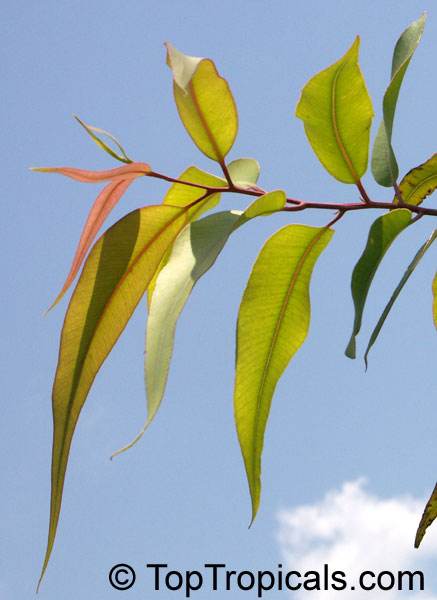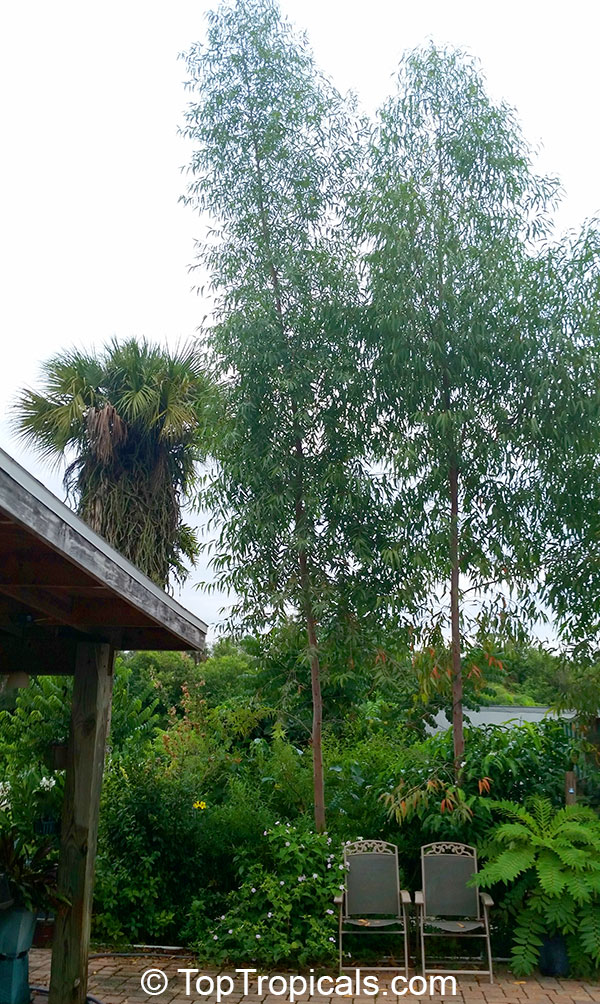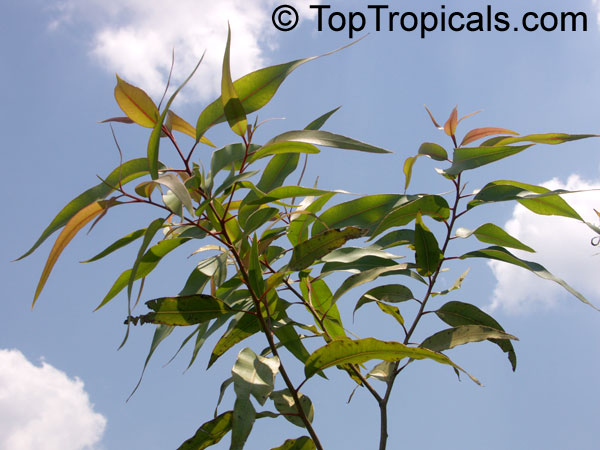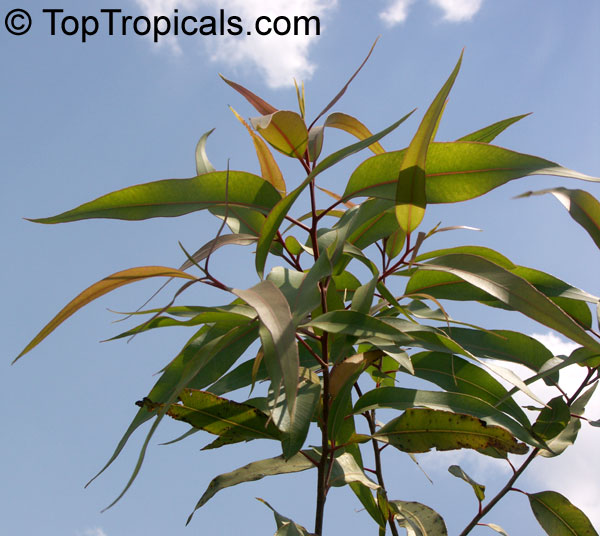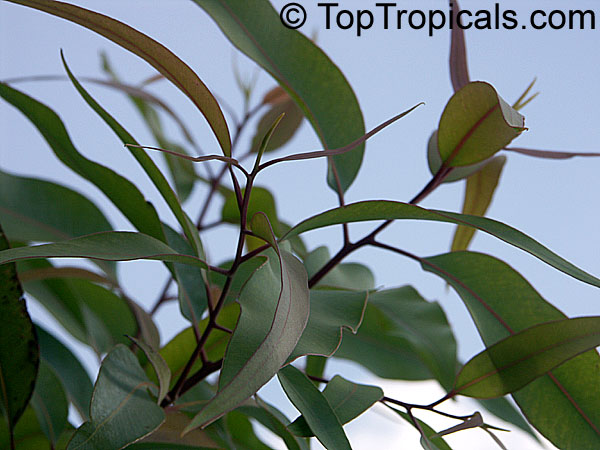Eucalyptus citriodora (Lemon Eucalyptus)
Botanical names: Eucalyptus citriodora, Corymbia citriodora
Common names: Lemon Eucalyptus, Citron-scented Gum, Lemon Scented Gum
Family: Myrtaceae
Origin: Australia








Lemon Eucalyptus (Eucalyptus citriodora) is a fast-growing evergreen tree native to Queensland, Australia. It is known for its strong lemony scent when the leaves are crushed and for the lemon-scented oil produced from its leaves, which is used in perfumery. The trunks and branches of this species are powdery white to pinkish and the trunks are usually very straight. In nature, these trees can reach heights of 75-100 ft, but their size can be easily controlled through selective pruning and container size when grown in a greenhouse setting. The white blooms of Lemon Eucalyptus are not particularly distinctive, but they are followed by woody urn-shaped capsules about half an inch wide.
Lemon Eucalyptus is best suited to USDA Zones 8-11 and can survive temperatures as low as the mid-20s Fahrenheit for a short time. It thrives in full sun and well-draining soil, and should be watered moderately. In the summer months, water occasionally, and in the winter, water only once a month. Fertilize twice a year, once before the new growth flush in spring and again in early summer. Pruning can be done in late spring to control size and for ornamental shaping. Both young and mature specimens display their ornamental foliage with aromatic fragrance.
In addition to its ornamental qualities, Lemon Eucalyptus has a number of practical uses. The leaves can be used in teas, tinctures, and as a culinary herb for fish and chicken dishes. The plant has antibacterial, antifungal, antiparasitic, and antiviral properties and can be used for antiseptic purposes. Lemon eucalyptus oil is also widely used in aromatherapy, such as in oil diffusers or baths.
Lemon Eucalyptus is an attractive and useful plant to have in the garden or landscape. It provides a number of benefits, including its impressive height, fragrant foliage, healing oil, and ornamental qualities. Just be sure to protect it in colder and humid climates, as it is still susceptible to damage in these conditions.
Similar plants: Eucalyptus citriodora (Lemon Eucalyptus)
- Corymbia setosa (Rough-leaved Bloodwood)
- Corymbia terminalis (Bloodwood)
- Corymbia torelliana (Cadaga)
- Eucalyptus albopurpurea (Purple-flowered Mallee Box)
- Eucalyptus calycogona (Gooseberry Mallee)
- Eucalyptus camaldulensis (River Red Gum)
- Eucalyptus cinerea (Argyle Apple)
- Eucalyptus deglupta (Rainbow Eucalyptus)
- Eucalyptus erythrocorys (Red-cap Gum )
- Eucalyptus kruseana (Book-leaf Mallee)
